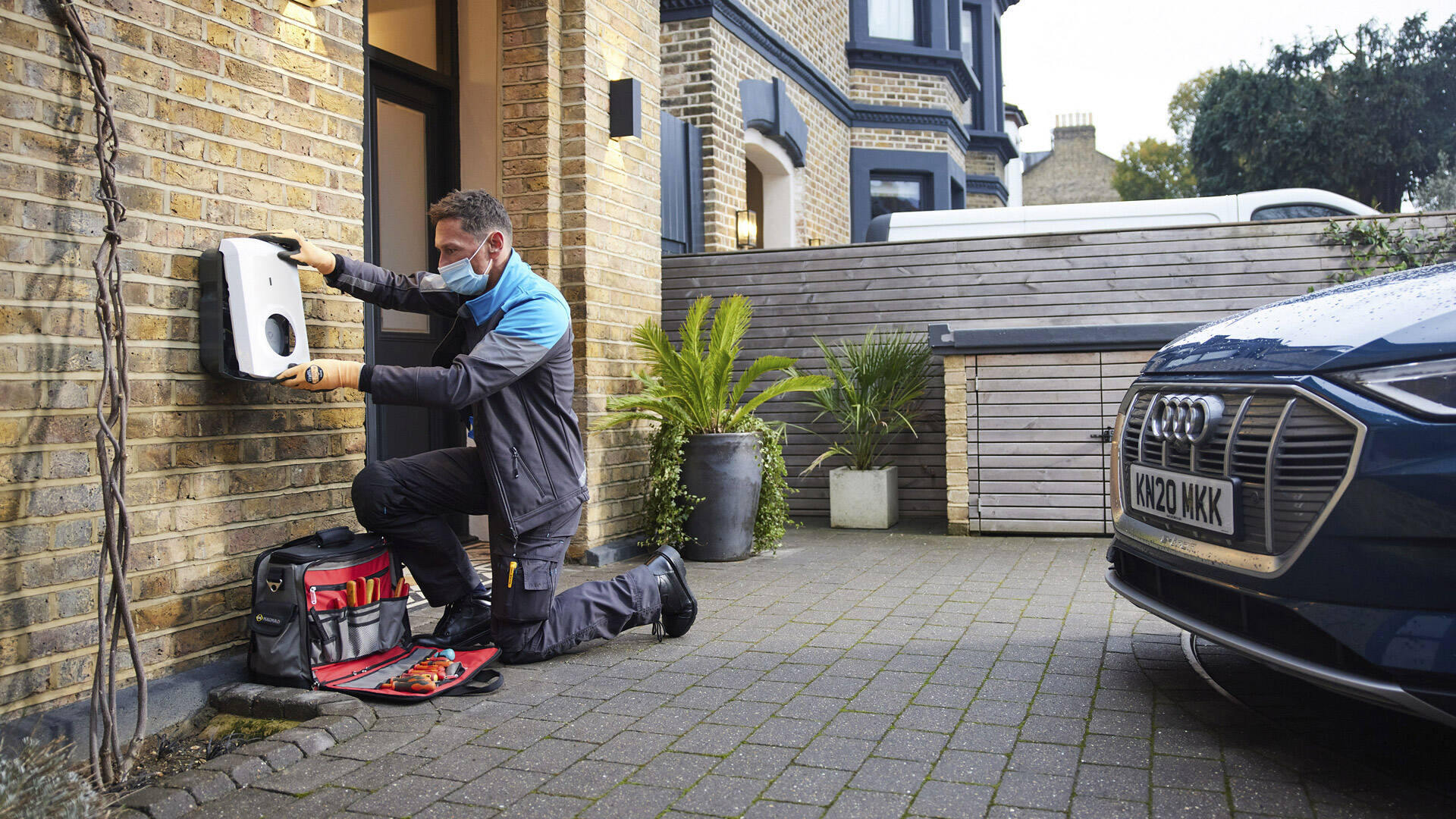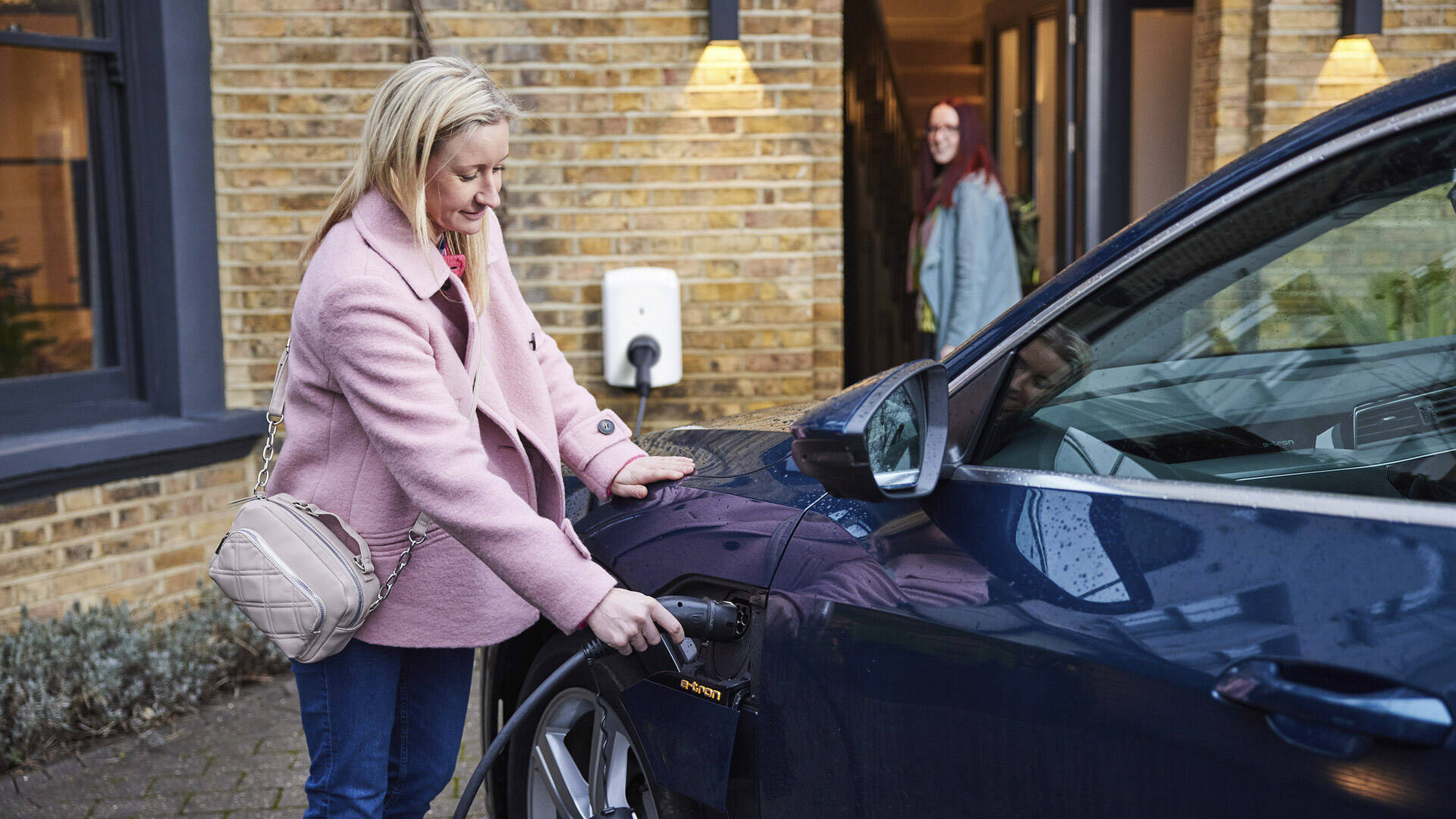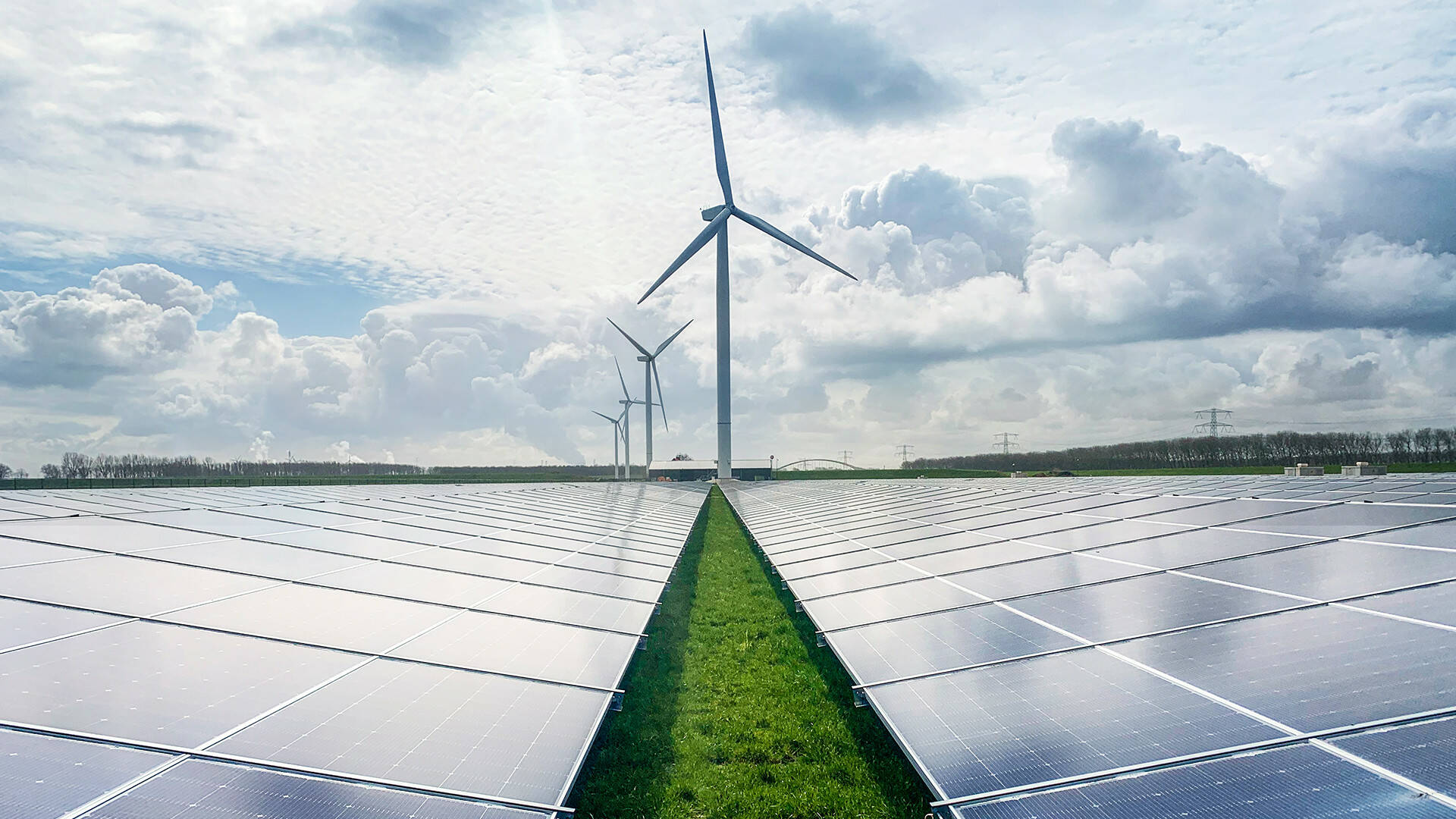
British Gas, on integrating smart EV charging into its Hive portfolio



Go to next article

Go back
scroll down

Honda, for example. They love that Alfen charging equipment is a part of our roadmap and becoming part of our Hive system. We are developing a real strategic relationship with Alfen. It was built off the back of our fleet activity relationship and it has worked well for us. Going forward, we plan to work together to further adapt the offering to continue to meet our customer needs as we grow our EV business.
As already mentioned, Alfen’s charge points are part of our imminent Hive EV Charging proposition launch.
Power Radar is our back-office system and it is based on the OCPP standard which allows it to communicate with Alfen’s smart chargers and this set-up works well.
In addition to the direct-to-consumer market, we also work with car OEM’s and lease companies; partners like Toyota and
Can you talk about your relationship with Alfen and how it adds value?
Hive, as an innovative, award-winning smart home app and already established digital brand, is perfectly placed to integrate with EV smart charging. We are launching a new Hive EV charging proposition in August which will utilise Alfen’s chargers and use both the British Gas and Hive brands together because they are both strong; British Gas for trust and Hive for innovation – a perfect combination!
Customers will also be able to choose to take our time-of-use tariff with very attractive off-peak pricing and so will financially benefit from choosing to charge their EVs at night, during periods when the grid is less in demand. Combining a time-of-use tariff with Hive EV Charging will be simple. This all helps put the consumer in control and is transparent, because customers can have clarity about the costs, the state and schedule of charging activities, how charged the vehicle is, and then easily schedule charging at cheaper times of the day. We’ll continue to evolve our tariff propositions to support new technologies in the home beyond EVs too.
Can you talk about innovation and the technologies that you see being integrated with EV charging?
Can you tell us about your ambitious goals for electrification of your fleet?
With so many engineers, we have one of the largest fleets in the UK and we plan to have it fully electrified 5 years before the government deadline, so by 2025. This year alone, we are installing around 2,000 charge points at our engineers’ homes. The technology allows for the automatic reimbursement of employees for home energy they use and the response has been really positive – even where colleagues don’t have a drive or dedicated off-street parking and so need to charge in a car park near their home to be able to drive electric.
“ We are launching a new Hive EV charging proposition in August which will utilise Alfen’s chargers ”
You have a very large customer base. Is this an advantage as you seek to accelerate EV adoption?
Our business purpose is to help our customers live sustainably, simply and affordably. Like most responsible organisations, we have a net zero ambition and so it is important for us to support a shift to EV, not just for our customers, but for the UK as a whole. We are well placed to do this and consider it our responsibility to drive the change.
Being customer-centric is essential to our proposition development. We’re always testing with customers and getting feedback. We try hard to ensure that we understand our customers and make things easy and transparent for them. Ultimately, our goal is to set up EV charging capability and to make charging easy. We are not just targeting our existing domestic customer base but also new customers. We’ve got significant targets to install thousands of chargers in the coming years. We also have a full roadmap of Hive EV app features to develop and launch. Key to making this all possible is a good quality smart charger and that’s where Alfen comes in – and has been great at adapting to and meeting our requirements.
Can you introduce British Gas and your role?
I have worked for British Gas for 8 years in a number of roles but, for the last 6 months I have been responsible for developing EV charging solutions and propositions for our domestic residential customer base. The business-to-business area is managed separately.
British Gas is the largest UK energy and home services company. We supply gas and electricity, boiler and central heating cover, as well as installing things like heating systems, boilers, smart home technology and EV charging.
In the Services and Solutions space, we offer a product called HomeCare, an insurance for boilers and central heating, plumbing and drains, and home electrical cover. The home electrical cover also includes the EV chargers installed by our engineers.
We are also one of the biggest connected or smart home providers in the UK with 1.9 million households using our Hive products, website and app to better manage their energy and home comforts including heating, lighting, security, sensors and plugs.
Our UK network of 7,500 engineers installs heating systems, for example, boilers and heat pumps nationwide, as well as managing annual servicing as part of our subscription HomeCare service. In fact, this large, skilled engineering network is one of our unique differentiators. Where EV is concerned, we currently have 175 engineers focused on charging installation and this includes at the homes of our employees.
Can you talk about the impact of energy transition and how you manage that?
The energy transition affects not just how our electricity is generated but also the products we can install. The mix of fuels we use to generate the electricity supplied to customers is already 100% zero carbon and the UK is also moving away from gas. This means that, from 2025 onwards, new build homes will not be allowed to have gas boilers installed. We are embracing this and our focus is to get ahead and stay ahead of the competition so we have a lot of trials going on with heating solutions, solar and battery storage for example.
The UK government has also banned the sale of new petrol and diesel vehicles from 2030, with hybrids to follow in 2035. There are various incentives in place to help stimulate this shift, for example, tax breaks for company lease cars and grants for charging infrastructure available from the government’s Office for Zero Emission Vehicles. Currently this amounts to £350 towards the cost of a domestic charge point and so this presents us with an opportunity in the domestic charging market.
Our Hive smart home technologies are already going a long way towards meeting the needs of energy transition. They give customers greater control of, and information about, their energy use and are therefore laying the foundations for grid services and optimisation - and smart EV charging is part of this because it is integrated into the app.

Jon Halliwell,
Proposition Lead at British Gas
British Gas, part of Centrica, is the UK’s largest energy service and solutions company, with approximately 6.9 million energy customers. As well as providing both gas and electricity, it also has 3.5 million service customers and has long been renowned for its HomeCare insurance package and, in particular, its boiler installation, servicing and maintenance, all of which are delivered by its national network of specialist engineers. In recent years, its service offering has expanded further to offer a range of clean energy and smart home technologies and this includes installation of EV charging.
With such a large network of engineers, unsurprisingly, British Gas also has one of the largest fleets in the UK, with approximately 12,000 vehicles in total. We spoke to Jon Halliwell, Proposition Lead for EV Charging at British Gas, about its ambitious targets for electrifying its fleet and how he sees the role of interconnected technology, including charging infrastructure, helping to deliver a cleaner future.


British Gas, on integrating smart EV charging into its Hive portfolio

Can you introduce British Gas and your role?
I have worked for British Gas for 8 years in a number of roles but, for the last 6 months I have been responsible for developing EV charging solutions and propositions for our domestic residential customer base. The business-to-business area is managed separately.
British Gas is the largest UK energy and home services company. We supply gas and electricity, boiler and central heating cover, as well as installing things like heating systems, boilers, smart home technology and EV charging.
In the Services and Solutions space, we offer a product called HomeCare, an insurance for boilers and central heating, plumbing and drains, and home electrical cover. The home electrical cover also includes the EV chargers installed by our engineers.
We are also one of the biggest connected or smart home providers in the UK with 1.9 million households using our Hive products, website and app to better manage their energy and home comforts including heating, lighting, security, sensors and plugs.
Our UK network of 7,500 engineers installs heating systems, for example, boilers and heat pumps nationwide, as well as managing annual servicing as part of our subscription HomeCare service. In fact, this large, skilled engineering network is one of our unique differentiators. Where EV is concerned, we currently have 175 engineers focused on charging installation and this includes at the homes of our employees.


Go to next article

Go back
Can you talk about your relationship with Alfen and how it adds value?
As already mentioned, Alfen’s charge points are part of our imminent Hive EV Charging proposition launch.
Power Radar is our back-office system and it is based on the OCPP standard which allows it to communicate with Alfen’s smart chargers and this set-up works well.
In addition to the direct-to-consumer market, we also work with car OEM’s and lease companies; partners like Toyota and
Honda, for example. They love that Alfen charging equipment is a part of our roadmap and becoming part of our Hive system. We are developing a real strategic relationship with Alfen. It was built off the back of our fleet activity relationship and it has worked well for us. Going forward, we plan to work together to further adapt the offering to continue to meet our customer needs as we grow our EV business.
Hive, as an innovative, award-winning smart home app and already established digital brand, is perfectly placed to integrate with EV smart charging. We are launching a new Hive EV charging proposition in August which will utilise Alfen’s chargers and use both the British Gas and Hive brands together because they are both strong; British Gas for trust and Hive for innovation – a perfect combination!
Customers will also be able to choose to take our time-of-use tariff with very attractive off-peak pricing and so will financially benefit from choosing to charge their EVs at night, during periods when the grid is less in demand. Combining a time-of-use tariff with Hive EV Charging will be simple. This all helps put the consumer in control and is transparent, because customers can have clarity about the costs, the state and schedule of charging activities, how charged the vehicle is, and then easily schedule charging at cheaper times of the day. We’ll continue to evolve our tariff propositions to support new technologies in the home beyond EVs too.
Can you talk about innovation and the technologies that you see being integrated with EV charging?
Can you tell us about your ambitious goals for electrification of your fleet?
With so many engineers, we have one of the largest fleets in the UK and we plan to have it fully electrified 5 years before the government deadline, so by 2025. This year alone, we are installing around 2,000 charge points at our engineers’ homes. The technology allows for the automatic reimbursement of employees for home energy they use and the response has been really positive – even where colleagues don’t have a drive or dedicated off-street parking and so need to charge in a car park near their home to be able to drive electric.

“ We are launching a new Hive EV charging proposition in August which will utilise Alfen’s chargers ”
You have a very large customer base. Is this an advantage as you seek to accelerate EV adoption?
Our business purpose is to help our customers live sustainably, simply and affordably. Like most responsible organisations, we have a net zero ambition and so it is important for us to support a shift to EV, not just for our customers, but for the UK as a whole. We are well placed to do this and consider it our responsibility to drive the change.
Being customer-centric is essential to our proposition development. We’re always testing with customers and getting feedback. We try hard to ensure that we understand our customers and make things easy and transparent for them. Ultimately, our goal is to set up EV charging capability and to make charging easy. We are not just targeting our existing domestic customer base but also new customers. We’ve got significant targets to install thousands of chargers in the coming years. We also have a full roadmap of Hive EV app features to develop and launch. Key to making this all possible is a good quality smart charger and that’s where Alfen comes in – and has been great at adapting to and meeting our requirements.
Can you talk about the impact of energy transition and how you manage that?
The energy transition affects not just how our electricity is generated but also the products we can install. The mix of fuels we use to generate the electricity supplied to customers is already 100% zero carbon and the UK is also moving away from gas. This means that, from 2025 onwards, new build homes will not be allowed to have gas boilers installed. We are embracing this and our focus is to get ahead and stay ahead of the competition so we have a lot of trials going on with heating solutions, solar and battery storage for example.
The UK government has also banned the sale of new petrol and diesel vehicles from 2030, with hybrids to follow in 2035. There are various incentives in place to help stimulate this shift, for example, tax breaks for company lease cars and grants for charging infrastructure available from the government’s Office for Zero Emission Vehicles. Currently this amounts to £350 towards the cost of a domestic charge point and so this presents us with an opportunity in the domestic charging market.
Our Hive smart home technologies are already going a long way towards meeting the needs of energy transition. They give customers greater control of, and information about, their energy use and are therefore laying the foundations for grid services and optimisation - and smart EV charging is part of this because it is integrated into the app.

Jon Halliwell,
Proposition Lead at British Gas
British Gas, part of Centrica, is the UK’s largest energy service and solutions company, with approximately 6.9 million energy customers. As well as providing both gas and electricity, it also has 3.5 million service customers and has long been renowned for its HomeCare insurance package and, in particular, its boiler installation, servicing and maintenance, all of which are delivered by its national network of specialist engineers. In recent years, its service offering has expanded further to offer a range of clean energy and smart home technologies and this includes installation of EV charging.
With such a large network of engineers, unsurprisingly, British Gas also has one of the largest fleets in the UK, with approximately 12,000 vehicles in total. We spoke to Jon Halliwell, Proposition Lead for EV Charging at British Gas, about its ambitious targets for electrifying its fleet and how he sees the role of interconnected technology, including charging infrastructure, helping to deliver a cleaner future.






